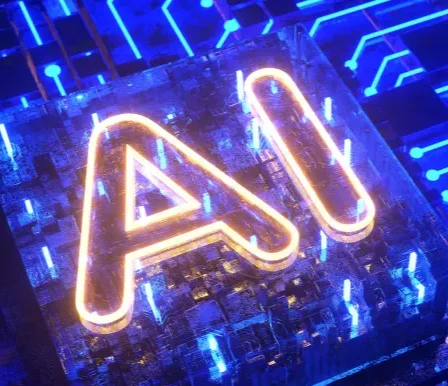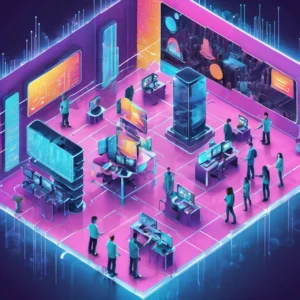As we enter 2025, the landscape of artificial intelligence (AI) continues to evolve at an unprecedented pace. AI has become a cornerstone of innovation across various industries, driving advancements in automation, decision-making, and customer engagement. In this post, we’ll explore the most significant AI trends poised to shape the year ahead and beyond.
The Rise of AI Ethics and Governance
One of the most critical trends in AI for 2025 is the increasing emphasis on ethics and governance. As AI systems become more integrated into daily life, concerns about their ethical implications have grown. Issues such as bias in AI algorithms, data privacy, and the accountability of AI decisions are now at the forefront of discussions among policymakers, businesses, and the public.
Organizations are expected to invest more in developing AI governance frameworks that ensure ethical AI use. This includes creating transparent processes for algorithmic decision-making, implementing rigorous testing for bias, and establishing clear accountability measures. As a result, AI ethics will move from a peripheral concern to a central component of AI development and deployment.
The Convergence of AI and IoT
Another major trend for 2025 is the convergence of AI with the Internet of Things (IoT). The integration of AI with IoT devices enables the creation of smart environments where devices can communicate, learn from data, and make autonomous decisions. This convergence is expected to drive significant advancements in various sectors, including healthcare, manufacturing, and smart cities.
For example, in healthcare, AI-powered IoT devices can monitor patients in real-time, predict potential health issues, and alert medical professionals before a crisis occurs. In manufacturing, smart factories equipped with AI and IoT can optimize production processes, reduce downtime, and enhance quality control. As AI and IoT continue to merge, the potential for innovation is limitless.
AI’s Impact on Workforce Automation
The impact of AI on workforce automation is another key trend to watch in 2025. AI is increasingly being used to automate repetitive and time-consuming tasks, freeing up employees to focus on more strategic and creative work. While this can lead to increased productivity and efficiency, it also raises concerns about job displacement.
To address these concerns, organizations are likely to focus on reskilling and upskilling their workforce. By providing training in AI-related skills, businesses can help their employees transition to new roles that complement AI technologies. This trend highlights the need for a balanced approach to AI adoption, where the benefits of automation are realized without negatively impacting the workforce.
The Expansion of AI in Cybersecurity
As cyber threats become more sophisticated, the role of AI in cybersecurity is expanding. AI-powered systems can analyze vast amounts of data in real-time, detect anomalies, and respond to threats more quickly than traditional methods. In 2025, we can expect to see more organizations leveraging AI to enhance their cybersecurity defenses.
AI’s ability to learn from past incidents and predict future attacks makes it a valuable tool in the fight against cybercrime. From identifying phishing attempts to preventing data breaches, AI will play a crucial role in safeguarding sensitive information. However, as cybercriminals also begin to use AI, the cybersecurity landscape will become a battleground of competing algorithms.
AI-Driven Personalization and Customer Experience
Finally, AI-driven personalization is set to revolutionize customer experience in 2025. Businesses are increasingly using AI to analyze customer data, understand preferences, and deliver personalized experiences across various touchpoints. This level of personalization not only enhances customer satisfaction but also drives brand loyalty and increases revenue.
AI-powered chatbots, recommendation engines, and predictive analytics are just a few examples of how AI is being used to tailor customer experiences. As AI technologies continue to advance, the ability to deliver hyper-personalized interactions will become a key differentiator for businesses.
Conclusion
The trends highlighted above represent just a few of the many ways AI is expected to shape the future. As AI continues to evolve, its impact on industries, workforces, and society as a whole will only grow. By staying ahead of these trends and embracing the opportunities they present, businesses can position themselves for success in the AI-driven world.
Ready to Unlock the Full Potential of AI in Your Organization?
Navigating the complexities of AI integration can be challenging, but you don’t have to do it alone. Whether you’re looking to enhance clinical decision-making, streamline operations, or drive innovation, our team of experts is here to guide you every step of the way.
Don’t let the challenges of AI hold you back—take the next step toward a smarter, more efficient future. Contact us today to learn how our Advisory Services can help you harness the power of AI, address critical challenges, and transform your business for the digital age.









